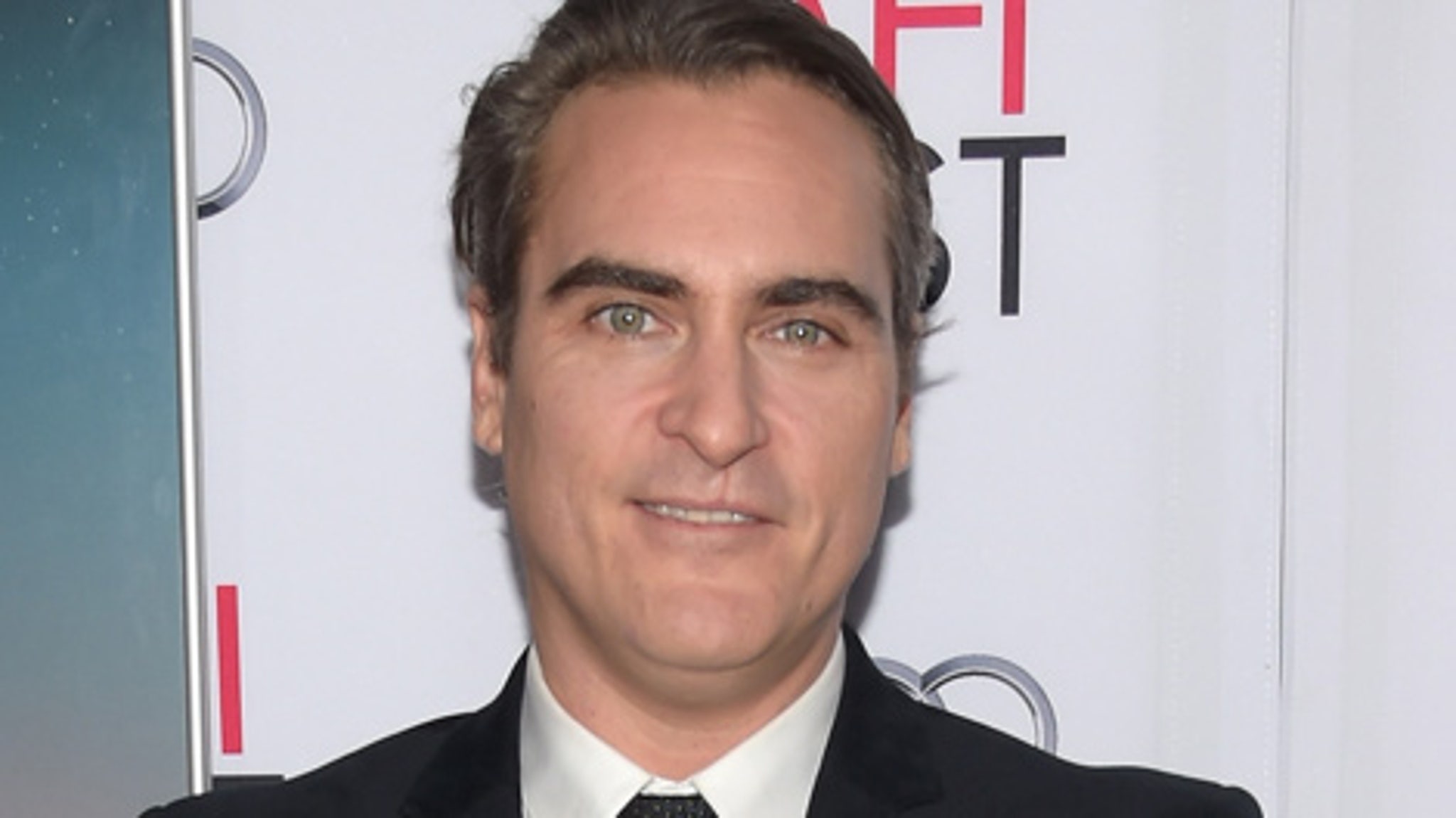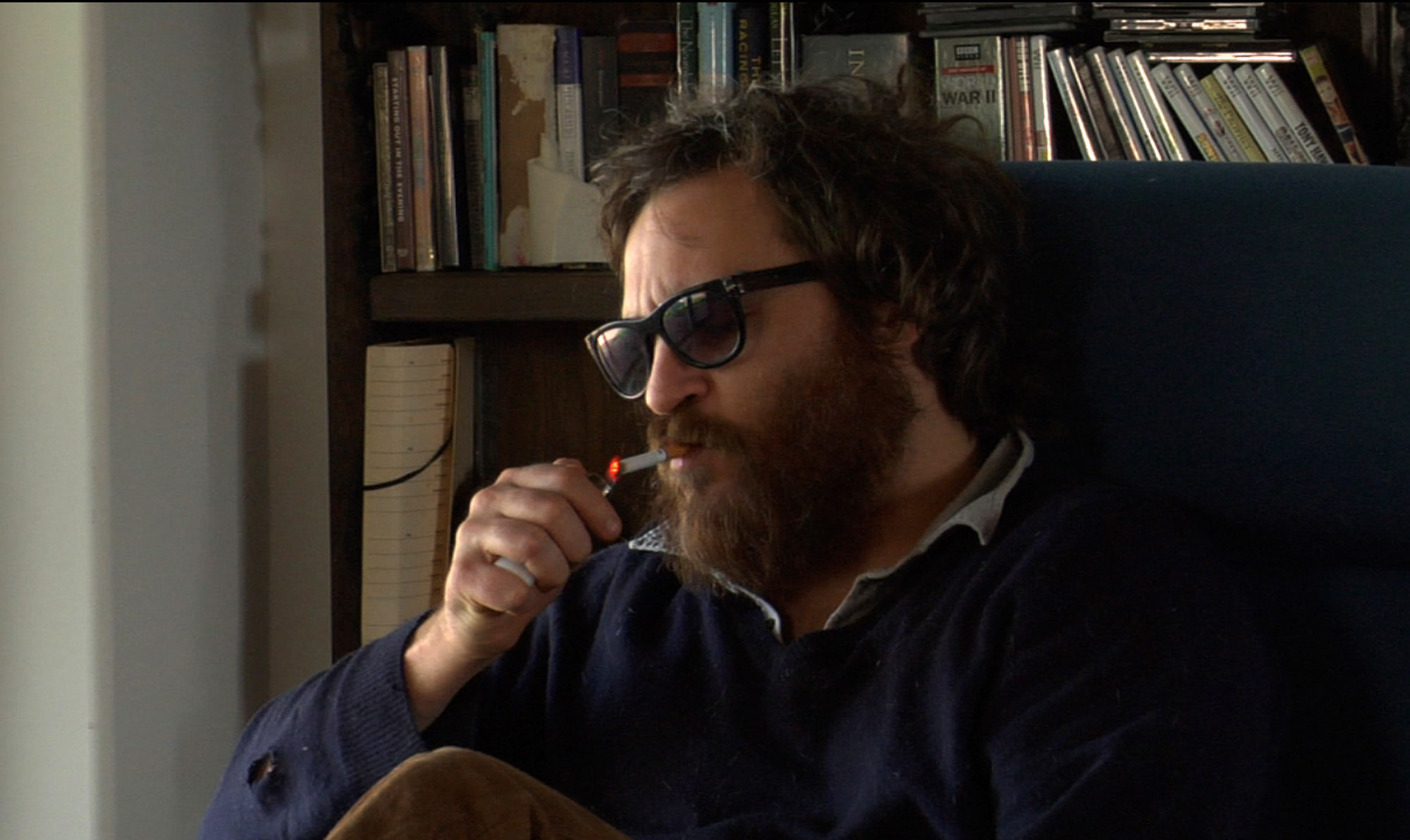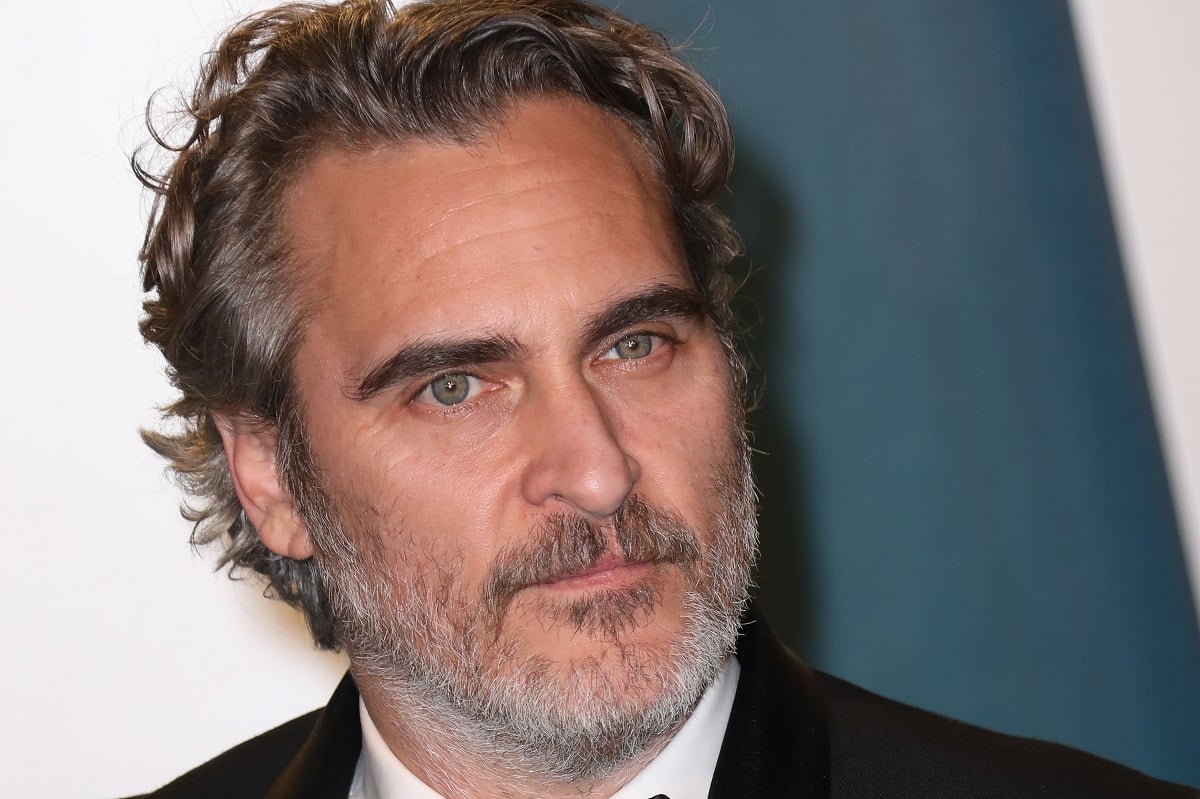Remembering The Joaquin Phoenix Letterman Interview: A Look Back At A Viral Moment
The world of entertainment has seen its share of unusual moments, but few have sparked as much talk and head-scratching as the now-famous Joaquin Phoenix Letterman interview. It was a moment that, you know, really caught everyone off guard, leaving many to wonder what exactly was going on. This appearance on the Late Show with David Letterman back in 2009 became, in a way, a defining event, not just for the actor himself, but for how we think about celebrity and performance.
Picture this: a usually private and intense actor, someone known for powerful roles, suddenly looking quite different. He had a big, bushy beard, sunglasses, and seemed, well, a bit disoriented. He told David Letterman he was quitting acting to become a rapper. The audience, and really, the whole world watching, just didn't know what to make of it. It was, arguably, one of the most talked-about late-night segments in a very long time.
What many didn't realize at the time, however, was that this whole strange performance was, in fact, part of a much bigger, more elaborate artistic project. It was a carefully planned piece of performance art, a real commitment to a role that blurred the lines between reality and fiction. So, let's take a closer look at this fascinating chapter in the life of a truly unique actor.
- Christian Bale Now 2025
- Highest Paid Porn Actor
- Robert De Niro Jack Nicholson
- Will Witherspoon Wife
- Johnny Depp Attorney
Table of Contents
- Joaquin Phoenix: A Brief Look
- The Infamous Letterman Appearance
- "I'm Still Here": The Truth Revealed
- The Lasting Impact on Joaquin Phoenix's Career
- Frequently Asked Questions About the Interview
Joaquin Phoenix: A Brief Look
Joaquin Phoenix, born Joaquin Rafael Bottom, has carved out a truly special place in the world of acting. He is, by all accounts, an American actor of great skill, someone who typically brings a deep level of intensity to his roles. Born on October 28, 1974, in San Juan, Puerto Rico, he came into the world as the middle child of five. His parents, Arlyn (Dunetz) and John Bottom, moved their family around quite a bit during his early years. You know, that kind of upbringing can really shape a person's outlook.
The name "Joaquin" itself has interesting roots, being a Spanish form of the English, French, German, and Polish name Joachim, and also a derivative of the English name Joshua. The family later adopted the surname "Phoenix," symbolizing new beginnings, which, in a way, feels quite fitting for someone who has reinvented himself throughout his career. He started acting at a young age, appearing in films like 'SpaceCamp' in 1986 and 'Parenthood' in 1989. These early roles, while not huge, definitely showed glimpses of his natural talent, even then.
Over the years, Joaquin Phoenix became known for taking on complex, often challenging characters. Films like 'To Die For' in 1995 showed his range. He gained widespread fame for his work in big movies such as 'Gladiator' and 'Walk the Line,' where he played Johnny Cash, earning much praise. He is, honestly, one of the most respected actors of his age, often pushing boundaries with his choices. He even won the Academy Award for Best Actor in a Leading Role in 2020, which was a pretty big deal for him.
- Ryan Gosling In Remember The Titans
- Net Worth Of Lloyd Banks
- Monica Potter Net Worth
- Ari Fletcher Net Worth 2024
- Van Morrison Net Worth
Personal Details and Early Life
To give you a clearer picture, here are some personal details about Joaquin Phoenix:
| Full Name | Joaquin Rafael Bottom |
| Born | October 28, 1974 |
| Birthplace | San Juan, Puerto Rico |
| Parents | Arlyn (Dunetz) and John Bottom |
| Notable Films | 'Gladiator', 'Walk the Line', 'Joker', 'To Die For' |
| Academy Award | Best Actor in a Leading Role (2020) |
The Infamous Letterman Appearance
The stage was set for something truly unforgettable on February 11, 2009. Joaquin Phoenix was scheduled to appear on the Late Show with David Letterman, ostensibly to talk about his new film, 'Two Lovers.' However, what unfolded was, you know, completely different from a typical celebrity interview. From the moment he walked out, something felt off. He had a thick, untamed beard, sunglasses that hid his eyes, and he seemed to move with a kind of slow, almost sleepy pace. It was, frankly, a bit unsettling for many watching at home.
What Happened on That Night?
As the interview began, the usual easy banter between a host and a guest was nowhere to be found. Joaquin Phoenix mumbled his answers, often giving short, strange replies that left Letterman, and the audience, genuinely puzzled. He announced, with a straight face, that he was done with acting. He said he was going to focus entirely on a career in hip-hop. This declaration, from an actor of his caliber, was, like, truly shocking to hear. Letterman, a seasoned interviewer, tried to make sense of it all, throwing out jokes and trying to get a rise out of his guest, but Phoenix remained in character, never breaking. It was, basically, a masterclass in awkward silence and strange pronouncements.
He talked about his new musical endeavors, which sounded, honestly, a bit rough around the edges. Letterman, with his quick wit, kept poking fun at the situation, asking if Phoenix was serious, or if this was all a joke. Phoenix, however, just kept up the act, insisting on his new path. The entire segment felt like a bizarre piece of theater playing out live on national television. It was, in a way, a test of how far a public figure could push the boundaries of expectation. The tension in the studio was, apparently, quite thick, making for compelling, if uncomfortable, viewing.
The Public's Reaction
The immediate aftermath of the Joaquin Phoenix Letterman interview was, to put it mildly, a whirlwind of confusion and strong opinions. Social media, which was still relatively new at the time, exploded with comments. People couldn't stop talking about it. Was he having some kind of breakdown? Was he on drugs? Was he just being incredibly rude? These were the kinds of questions flying around. News outlets picked up the story immediately, dissecting every mumbled word and every strange gesture. He became, for a brief time, the subject of countless jokes and parodies, particularly on other late-night shows. It was, like, everywhere you looked.
Many viewers felt a mix of concern and frustration. They had admired his acting, and this sudden, seemingly erratic behavior was, you know, deeply unsettling. Some felt he was disrespecting Letterman, while others genuinely worried about his well-being. The interview quickly went viral, becoming a defining cultural moment of 2009. It was a time when the lines between public persona and private struggles seemed, perhaps, more blurred than ever before. This widespread reaction just goes to show how much people care about the celebrities they follow, and how quickly public opinion can form, sometimes without all the facts.
"I'm Still Here": The Truth Revealed
For months after the Letterman appearance, the mystery surrounding Joaquin Phoenix's behavior continued to grow. Then, in 2010, the truth finally came out with the release of the film 'I'm Still Here.' This movie, directed by his brother-in-law Casey Affleck, was, in fact, the entire point of the bizarre public performance. It was a mockumentary, a fake documentary, designed to explore themes of celebrity, identity, and the media's hunger for sensationalism. The Letterman interview was, arguably, the most public and impactful part of this elaborate art project.
A Film Experiment
'I'm Still Here' showed Joaquin Phoenix's supposed journey from acclaimed actor to struggling rapper. It depicted his attempts to record an album, his strange behavior, and the reactions of those around him. The film aimed to make viewers question what was real and what was staged, challenging their perceptions of authenticity in the age of reality television and constant media scrutiny. It was, essentially, a very long, very committed piece of performance art, playing out in real time for the public. The whole thing was, you know, a bold move, pushing the boundaries of what a film could be.
The dedication to the act was, honestly, quite extraordinary. Phoenix stayed in character for nearly two years, not just during the Letterman interview, but in all his public appearances and interactions. This level of commitment showed his deep artistic drive and his willingness to, like, really immerse himself in a project, no matter how unconventional. It was a risky experiment, one that could have, in some respects, completely derailed his career. But for Phoenix, the artistic statement seemed to matter more than public opinion at the time. The film, in a way, made us all part of the experiment, whether we knew it or not.
Casey Affleck's Role
Casey Affleck, who was married to Joaquin's sister Summer Phoenix at the time, was the mastermind behind 'I'm Still Here.' He directed the film and was, basically, the only other person truly in on the secret during the height of the public confusion. Affleck's role was crucial in documenting Phoenix's transformation and maintaining the illusion. He filmed Phoenix's daily life, his interactions, and the various incidents that made it into the final cut of the movie. It was, you know, a collaborative effort that required immense trust between the two men.
Affleck later explained that the film was a commentary on how we consume celebrity, how we crave scandal, and how easily we can be manipulated by what we see in the media. His direction ensured that the mockumentary felt, honestly, very real, blurring the lines so effectively that even seasoned journalists and talk show hosts were fooled. The film, and Affleck's role in it, showed a really interesting side of filmmaking, where the process itself becomes part of the art. It was, in some respects, a very clever, if controversial, piece of work.
The Lasting Impact on Joaquin Phoenix's Career
The Joaquin Phoenix Letterman interview, and the 'I'm Still Here' project it was part of, had a truly interesting effect on his career. For a while, there was, like, real concern that he had lost his way. Many people in Hollywood, and certainly the public, wondered if he could ever come back from such a bizarre public display. Yet, in a very Joaquin Phoenix way, it seems to have only strengthened his reputation as an actor who is, frankly, fearless and deeply committed to his craft. He didn't just play a role; he lived it for an extended period, which is pretty rare.
After the film's release, the initial shock and confusion gave way to a kind of respect for his artistic dedication. It showed that he was willing to take huge risks for the sake of his art, even if it meant looking foolish or inviting ridicule. This episode, in some respects, cemented his image as an unconventional talent, someone who isn't afraid to challenge norms and expectations. He proved that he could not only recover from such a public stunt but, you know, emerge even stronger, with his artistic integrity seemingly intact. His subsequent roles, including his Oscar-winning performance in 'Joker,' continued to showcase his intensity and willingness to delve into complex characters.
Even today, years later, the Joaquin Phoenix Letterman interview remains a widely discussed moment in pop culture. It serves as a reminder of the power of performance, the blurred lines between public and private personas, and the enduring fascination with celebrity. It's almost as if the incident, rather than harming his career, added another layer to his mystique, making him an even more compelling figure in the acting world. It was, in a way, a very bold statement about the nature of fame itself. You can read more about the interview's impact from a different perspective.
Frequently Asked Questions About the Interview
Was the Joaquin Phoenix Letterman interview real?
No, the Joaquin Phoenix Letterman interview was not real in the traditional sense. It was, basically, a staged performance, part of a larger artistic project for the mockumentary film 'I'm Still Here.' Joaquin Phoenix was in character the entire time, pretending to have quit acting for a rap career. David Letterman, it seems, was not fully in on the joke at the time of the interview, which made his reactions, you know, genuinely surprised and funny.
What movie was Joaquin Phoenix promoting on Letterman?
While Joaquin Phoenix was ostensibly on the Late Show to promote his film 'Two Lovers,' his appearance was primarily a performance designed to generate buzz and confusion for the mockumentary 'I'm Still Here.' This later film, directed by Casey Affleck, documented his fake transition from acting to a rap career. So, in a way, he was promoting two different projects, but only one of them was the real reason for his unusual behavior.
Did Joaquin Phoenix really quit acting for rap?
No, Joaquin Phoenix did not really quit acting for a rap career. His declaration on the Late Show with David Letterman was all part of his committed performance for the film 'I'm Still Here.' He was simply playing a character who was trying to become a rapper. After the film was released, he returned to acting, continuing to take on acclaimed roles. You can Learn more about Joaquin Phoenix on our site, and discover more about his incredible filmography and how he became such a respected figure in Hollywood. For more moments that shocked the public, you might want to check out this page on iconic celebrity moments.
- Bryan Cranston Imdb
- Cillian Murphy Avengers
- Ben Wallace Net Worth
- Michael Symon Net Worth
- Jk Simmons J Jonah Jameson Quotes

Joaquin Phoenix Finally Talks About His Infamous Letterman Interview

Joaquin Phoenix Gets Letterman Do-Over - CBS News

The Director That Said He’d Ruined Joaquin Phoenix After Seeing His